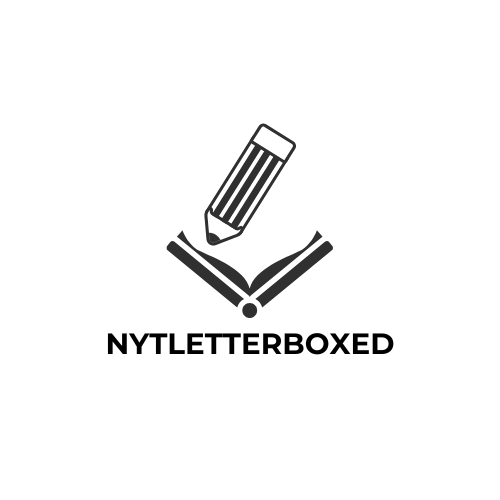
Technical Writing Master’s Programs: A Complete Guide to Advanced Career Opportunities
Technical writing has emerged as one of the most sought-after skills in today’s digital landscape. As someone who’s spent years in this field I’ve witnessed its evolution from basic documentation to a complex discipline that bridges technology and communication.
I’ve discovered that pursuing a master’s degree in technical writing offers more than just advanced writing skills. It opens doors to specialized roles in software documentation medical writing and emerging technologies like AI documentation. Whether you’re a seasoned writer looking to level up or a professional seeking to transition into technical communication a master’s program can provide the structured pathway you need.
Key Takeaways
- A Technical Writing Master’s degree combines advanced documentation skills, content strategy, and practical industry applications, typically offering both online and on-campus options.
- The program curriculum covers essential areas like document design, information architecture, API documentation, and content management systems, with core tools including Adobe Creative Suite and various CMS platforms.
- Career opportunities are diverse, with a projected 12% job growth through 2030 and median annual salaries of $78,060, spanning industries from software development to healthcare technology.
- Top universities offering these programs include Johns Hopkins, Carnegie Mellon, and MIT, with admission requirements typically including a bachelor’s degree, writing portfolio, and minimum 3.0 GPA.
- Program costs range from $15,000 to $40,000, but offer strong ROI potential with senior positions commanding salaries between $85,000-$150,000 annually.
- Students build professional portfolios through real-world projects and internships with major companies, developing practical experience in API documentation, user guides, and technical specifications.
Technical Writing Masters
A Technical Writing Masters Degree is a specialized graduate program focusing on advanced documentation skills, content strategy, and information design. The program combines theoretical knowledge with practical applications in technical communication.
Core Curriculum and Coursework
The core curriculum emphasizes professional documentation practices, digital content creation, and project management. Key courses include:
- Document Design and Layout: Adobe Creative Suite, HTML, CSS
- Information Architecture: User experience research, content organization
- Advanced Technical Writing: API documentation, white papers, UX writing
- Content Management Systems: XML, DITA, structured authoring
- Research Methods: Data analysis, user testing, documentation metrics
- Project Management: Agile methodologies, team collaboration tools
- Information Design: Creating user-centered documentation structures
- Content Strategy: Developing documentation plans across platforms
- Technical Tools: Mastering industry-standard authoring software
- API Documentation: Writing clear endpoints, parameters, responses
- UX Writing: Crafting microcopy, error messages, help content
- Data Visualization: Converting complex data into visual formats
| Skill Category | Professional Applications | Industry Demand |
|---|---|---|
| Documentation | Software manuals, API guides | 78% |
| Content Strategy | Information architecture, taxonomy | 65% |
| Technical Tools | CMS, authoring software | 82% |
| UX Writing | Interface text, help systems | 71% |
| Data Visualization | Charts, diagrams, infographics | 68% |
Top Universities Offering Technical Writing Masters Programs
 Leading universities across the United States offer comprehensive master’s programs in technical writing through their English or Communications departments. These programs combine academic rigor with practical industry applications to prepare students for advanced technical communication roles.
Leading universities across the United States offer comprehensive master’s programs in technical writing through their English or Communications departments. These programs combine academic rigor with practical industry applications to prepare students for advanced technical communication roles.
Online vs On-Campus Options
These top-ranked universities provide flexible learning formats to accommodate diverse student needs:
Online Programs:
- Johns Hopkins University: MS in Communication with Technical Writing focus
- Arizona State University: MA in Technical Communication
- Northeastern University: MS in Technical Communication
- University of Wisconsin-Stout: MS in Technical and Professional Communication
On-Campus Programs:
- Carnegie Mellon University: MA in Professional Writing
- Massachusetts Institute of Technology: MS in Science Writing
- University of Washington: MS in Human Centered Design & Engineering
- Rensselaer Polytechnic Institute: MS in Technical Communication
Admission Requirements
Standard admission criteria for technical writing master’s programs include:
Academic Prerequisites:
- Bachelor’s degree from an accredited institution
- Minimum GPA of 3.0 on a 4.0 scale
- Official transcripts from all institutions attended
- Writing portfolio with 3-5 technical documentation samples
- Statement of purpose (500-1000 words)
- Professional resume or CV
- 2-3 letters of recommendation
- GRE scores (required by select programs)
- English proficiency scores for international students (TOEFL: 100+ or IELTS: 7.0+)
- Professional experience (preferred by some institutions)
Career Opportunities with a Technical Writing Masters
A Technical Writing Masters opens doors to diverse career paths across multiple industries with competitive salaries. The U.S. Bureau of Labor Statistics reports a median annual wage of $78,060 for technical writers with advanced degrees.
Industry Demand and Job Outlook
The technical writing field demonstrates consistent growth with a projected 12% increase in job opportunities through 2030. Key industries driving this demand include:
- Software Development: Documentation for APIs cloud platforms machine learning systems
- Healthcare Technology: Medical device documentation clinical trial reports regulatory compliance
- Manufacturing: Product manuals safety protocols equipment specifications
- Aerospace Defense: Systems documentation security protocols training materials
- Financial Technology: User guides compliance documentation process workflows
| Industry Sector | Annual Growth Rate | Average Starting Salary |
|---|---|---|
| Software Tech | 15% | $85,000 |
| Healthcare | 11% | $72,000 |
| Manufacturing | 9% | $68,000 |
| Aerospace | 8% | $76,000 |
| FinTech | 13% | $82,000 |
Typical Roles and Responsibilities
Technical Writing Masters graduates qualify for specialized positions across various sectors:
- Senior Technical Writer: Lead documentation projects create style guides mentor junior writers
- Documentation Manager: Oversee content teams establish workflows set documentation standards
- Content Strategist: Develop content architectures create taxonomy systems plan content lifecycles
- UX Writer: Design interface copy create user guides develop help documentation
- API Documentation Specialist: Write developer guides create reference materials document endpoints
- Information Architect: Structure content systems design information hierarchies organize documentation
- Technical Publications Manager: Direct publication processes manage documentation teams coordinate releases
- Regulatory Documentation Specialist: Create compliance documents maintain regulatory standards update procedures
Each role combines technical expertise communication skills project management abilities developed through the masters program coursework practical applications.
Cost and Return on Investment
A Technical Writing Master’s program represents a significant financial investment with strong earning potential. The comprehensive analysis of costs balanced against career opportunities reveals compelling economic benefits.
Tuition and Financial Aid
The average tuition for a Technical Writing Master’s program ranges from $15,000 to $40,000 for the complete degree. Here’s a breakdown of costs and financial support options:
| Program Type | Average Total Tuition |
|---|---|
| Public University | $15,000 – $25,000 |
| Private University | $30,000 – $40,000 |
| Online Programs | $18,000 – $35,000 |
Financial aid options include:
- Federal Direct Unsubsidized Loans with fixed interest rates
- Graduate PLUS loans for additional expenses
- Merit-based scholarships from universities ($5,000-$20,000)
- Employer tuition reimbursement programs
- Graduate assistantships offering tuition waivers
- Professional organization grants for technical communication students
Salary Potential
Technical Writing Master’s graduates command higher salaries across various positions:
| Position | Average Annual Salary |
|---|---|
| Senior Technical Writer | $85,000 – $110,000 |
| Documentation Manager | $95,000 – $125,000 |
| Content Strategy Director | $110,000 – $150,000 |
| Technical Publications Manager | $90,000 – $130,000 |
- Annual salary increases of 3-5% with experience
- Performance bonuses ranging from 5-15% of base salary
- Additional compensation through stock options
- Consulting opportunities at $75-150 per hour
- Leadership roles with comprehensive benefits packages
- Remote work options reducing commuting costs
Building Your Portfolio During the Program
A technical writing master’s program provides multiple opportunities to develop a professional portfolio through coursework, internships and collaborative projects. Here’s how to maximize these opportunities for career advancement.
Real-World Projects and Internships
Professional portfolios grow substantially through hands-on experience with industry projects and internships. Leading programs partner with technology companies like Microsoft, Google and Adobe to provide students with real documentation assignments. These collaborations typically include:
- Creating API documentation for actual software products
- Developing user guides for enterprise applications
- Writing technical specifications for product features
- Producing white papers on emerging technologies
- Designing information architecture for knowledge bases
Many programs require a 3-6 month internship, offering positions at:
- Software development companies (Oracle, Salesforce)
- Medical device manufacturers (Medtronic, Boston Scientific)
- Aerospace firms (Boeing, Lockheed Martin)
- Technology consultancies (Accenture, Deloitte)
- Research laboratories (National Labs, University Research Centers)
The project deliverables become valuable portfolio pieces, demonstrating:
- Implementation of industry standards
- Experience with professional tools (MadCap Flare, Adobe FrameMaker)
- Collaboration in cross-functional teams
- Understanding of development lifecycles
- Adherence to style guides and documentation requirements
Each portfolio piece includes:
- Project objectives and scope
- Target audience analysis
- Documentation samples
- Process documentation
- Metrics and outcomes
| Portfolio Component | Typical Count | Industry Value Rating |
|---|---|---|
| Software Docs | 3-5 pieces | 9/10 |
| Technical Guides | 4-6 pieces | 8/10 |
| API Documentation | 2-3 pieces | 9/10 |
| UX Writing Samples | 3-4 pieces | 8/10 |
| Process Documents | 2-3 pieces | 7/10 |
A master’s degree in technical writing represents more than just an academic achievement – it’s a gateway to exciting career opportunities in our technology-driven world. I’ve seen how this specialized education transforms professionals into skilled communicators who bridge the gap between complex technology and user understanding.
The investment in time and resources pays off through expanded job prospects competitive salaries and the ability to work across diverse industries. I believe that as technology continues to evolve the demand for qualified technical writers will only grow making this an excellent time to pursue advanced education in this field.
Whether you’re looking to advance your current career or transition into technical writing a master’s degree provides the perfect foundation for long-term success in this dynamic field.
